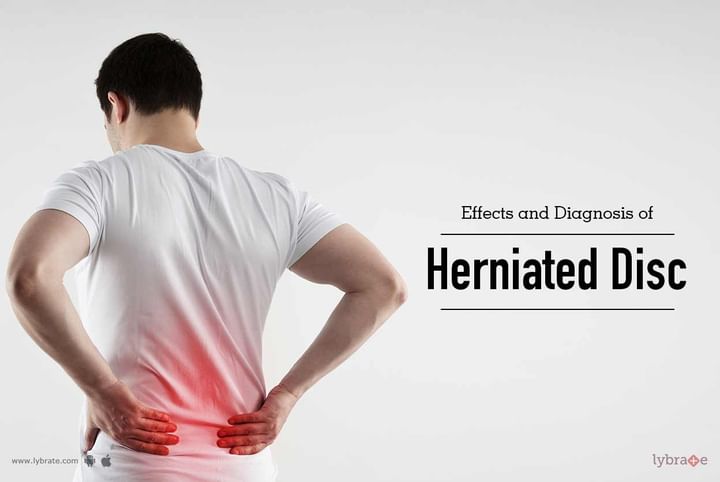Effects and Diagnosis of Herniated Disc
A Herniated disc also known as a slip disc or prolapsed disc and it refers to the problem where one of the discs located in between the bones of the vertebrae(backbone) gets damaged and stacks itself upon the nerves. The tender inner portion of the disc gets protruded over the outer ring. Herniated disc causes severe neck pain and back pain. It occurs when the outer ring gets weak and tears down. The most common symptoms include pain and numbness, especially on one side of the body. The pain extends down to the arms and legs. It worsens during nighttime. The muscles become weak. Overweight people are likely to have this disease, as the discs carry extra weight. Old people are vulnerable to a slip disc.
Effects of Herniated Disc:
- An untreated case of Herniated disc may cause permanent damage to the nerves.
- In certain cases, a Herniated disc is capable of cutting off nerve impulses to the "caudal equine"nerves, present in the lower back and legs. This leads to loss of bladder control or bowel control.
- Saddle anaesthesia is another long-term effect. Nerves are compressed by the slip disc, causing loss of sensation in the inner portions of your thighs, the back of your legs and surrounding the rectum region.
- Symptoms may improve or worsen.
Diagnosis of Herniated Disc:
Treatment or diagnosis of Herniated disc or slipped disc can be either conservative or surgical in nature. The nature of treatment is determined according to your discomfort level and the kind of pain you are experiencing, or how much the disc has slipped out.
- The pain caused by Herniated disc can be relieved by undertaking an exercise schedule, which includes stretching and strengthening the spine and its surrounding muscles.
- A physiotherapist should be appointed for recommending the types of exercises.
- Taking pain relievers also soothes the pain.
- Stronger medicines prescribed by doctors include-muscle relaxants, narcotics to deal with the pain, medicines for nerve pain such as "gabapentin" or "duloxetine".
- In case of the symptoms not subsiding within a span of six weeks, a surgery may be recommended by your doctor. The surgeon may have to remove the damaged part of the disc. This surgery is called a microdiscectomy.



+1.svg)
